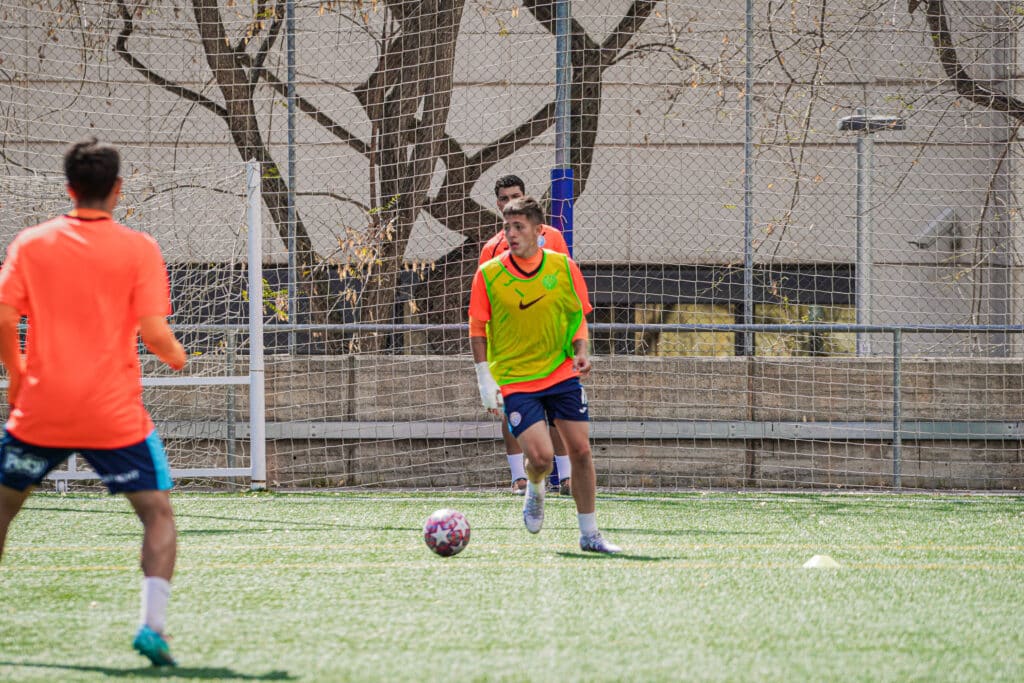Football is a dynamic sport full of unpredictable situations that require players to make quick and effective decisions on the pitch. One of the fundamental skills that contribute to success in football is perception. Players with developed perception have the ability to better interpret situations that develop during the play, making it easier to make good decisions and optimise tactical intentions.
In this article, we will explore the importance of perceptual skills in football and how these skills impact on the tactical interpretation of the game.
How important is Perception in football?
Perception is one of the key components in the mechanism of motor action in football, which consists of three stages: perception, decision and execution (coordination of movements). In this context, perception plays a crucial role, as it involves paying attention to relevant stimuli in the player’s environment.
In open sport situations such as football, sensory and perceptual abilities are fundamental to performance. The relationship between a football player’s perceptual ability and his tactical interpretation of the play is linked. The ability to anticipate and perceive stimuli is what distinguishes a tactically intelligent player. Moreover, attention is a complex ability that a football player must master, as they must select the right approach and constantly switch between different aspects of the play.
How does Perception relate to Decision Making?
A football player with an optimised perceptual capacity is able to select the most relevant stimuli, interpret them appropriately and, by processing the information, make the right decisions on the field of play. Tactical intelligence, derived from perception and information processing during play, enables the intelligent use of technical and physical skills. This means that a player with developed perception can recognise when and how to act, integrating effectively into the team’s actions.
How can we develop Perceptual Skills?
It is important to note that perceptual skills can be developed and improved with training. As a player grows and gains experience, the perceptual demands increase due to the complexity of the playing environment. Therefore, it is essential to continue working on the development of perceptive skills from an early age and throughout a player’s career.
At MBP School of Coaches, we believe that in order to maintain the specificity of the competitive context (ecological context), the player must live in constant uncertainty, perceiving and acting through the information the player obtains. The process of decision-making and subsequent action is interdependent, forming a constant feedback loop between perception and action (Gibson, J. 1975).
Therefore, for the training of perception, we will need to set open tasks in which the player does not initially know what they have to do to solve the problem they are faced with. In this way, we will ensure that they have to become as cognitively involved as possible, just as they will have to do during competition.
Conclusion
In short, the development of perceptual skills is essential in football. These skills enable players to effectively interpret playing situations and make sound decisions. Perception is a key component in the process of training and accumulation of experience that distinguishes skilled players. Training and honing perceptual skills from an early age is fundamental to becoming a complete and tactically intelligent player in football.








